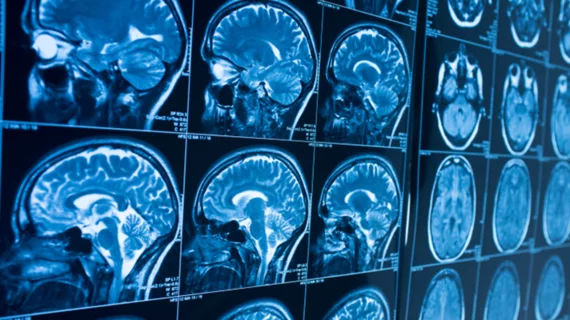A team of researchers used MRI brain scans to predict which patients would develop dementia within three years, and were nearly 90 percent accurate, according to a small study presented at RSNA 2018 in Chicago.
"Right now it's hard to say whether an older person with normal cognition or mild cognitive impairment is likely to develop dementia," said lead author Cyrus A. Raji, MD, PhD, with Washington University's Mallinckrodt Institute of Radiology in St. Louis, in a news release. "We showed that a single MRI scan can predict dementia on average 2.6 years before memory loss is clinically detectable, which could help doctors advise and care for their patients."
Together with colleagues from the University of California San Francisco, Raj et al. included 10 people from the Alzheimer’s Disease Neuroimaging Initiative whose cognitive skills declined over a two-year period. Those patients were paired by age (average of 73) and sex with 10 participants with healthy thinking skills. The authors looked at diffusion tensor MRI scans taken prior to the two-year period in all 20 patients.
Those who eventually experienced cognitive decline showed more signs of damage to white matter in their brain. After refining their white matter technique to look at the whole brain, the group performed the analysis in an independent group of 61 people and could predict cognitive decline with 89 percent accuracy. When zeroing in on specific areas of the brain, they were 95 percent accurate.
"We could tell that the individuals who went on to develop dementia have these differences on diffusion MRI, compared with scans of cognitively normal people whose memory and thinking skills remained intact," Raji said in the release. "What we need now, before we can bring it into the clinic, is to get more control subjects and develop computerized tools that can more reliably compare individual patients' scans to a baseline normal standard. With that, doctors might soon be able to tell people whether they are likely to have Alzheimer's develop in the next few years."

